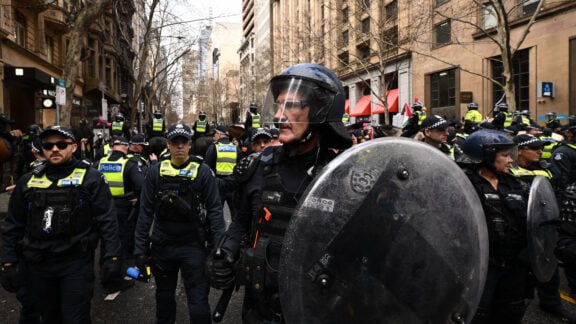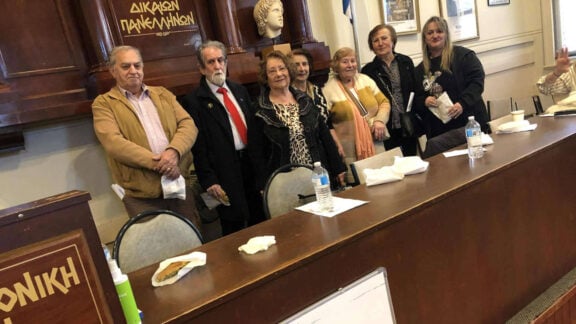The Panarcadian Association of Australia and The Panarcadian Association of Melbourne and Victoria “ο Kolokotronis” held a commemorative liturgy at the Axion Esti Church in Melbourne to honour the 179th anniversary from the legendary Theodoros Kolokotsonis’ passing.
The service was followed by a wreath laying ceremony presided by Emilia Kazakos which was attended by the Consul General of Greece in Melbourne Mr Emmanuel Kakavelakis and several state, local and community officials.
As a leading figure of the Greek Revolution, Kolokotronis (born April 1770 in Messinia and died in Athens on 15 February, 1843), often referred to as the Old Man of Morea (o Geros tou Moria), played a seminal role in the history of Modern Greece, not only in the war but also in shaping the new state, and has been associated with some of the greatest successes of the national struggle for freedom, such as the Siege of Tripolitsa and the Battle of Dervenakia.

From the wreath laying ceremony. Photos: Kostas Deves
From the wreath laying ceremony. Photos: Kostas Deves

From the wreath laying ceremony. Photos: Kostas Deves

From the wreath laying ceremony. Photos: Kostas Deves

From the wreath laying ceremony. Photos: Kostas Deves

From the wreath laying ceremony. Photos: Kostas Deves
Following the establishment of Ottoman rule in the mainland of Greece, several were those (especially coming from the army or local militia) who chose to take refuge in the mountains and live as bandits. Throughout the Ottoman period, they would be joined by others who sought to flee vendettas, taxes or the law. These people would eventually be called klephts (kleftes, “thieves”) as they lived by brigandage.
As a response, the Ottomans employed irregular forces commissioned enforcing the Sultan’s authority and maintaining the peace. This type of militia, called the armatoles (armatoloi, “armed men”), which had already existed in the Byzantine Empire, were increasingly used by the Ottomans in areas with many klephts.
When the Greek Revolution started being planned, these seemingly rivalling but actually interchanging groups were united, forming the nucleus of the Greek fighting forces throughout the War of Independence.

As a member of the Greek revolutionary society Philikí Etaireía, Kolokotronis led Moreot bands during the War of Independence. His most brilliant action was his part in the defeat of Mahmud Dramali’s Ottoman army in August 1822. He was imprisoned on Hydra for his defiance of the central government but was later released to help defend the Morea (Peloponnese) against the Egyptians. In 1825 he signed the Greek demand for British protection and invited Sir Richard Church to be Greek commander in chief.
In 1828 he supported the president, Count I.A. Kapodístrias, and became one of the leaders of the pro-Russian party. After the count’s assassination on 9 October, 1831, Kolokotronis set up a rival administration favouring 17-year-old Prince Otto of Bavaria for the newly created Greek throne, and he later tried to overthrow the young king’s regency, composed largely of Bavarians.
For this, Kolokotronis was condemned to death on 7 June, 1834, but was later reprieved.







